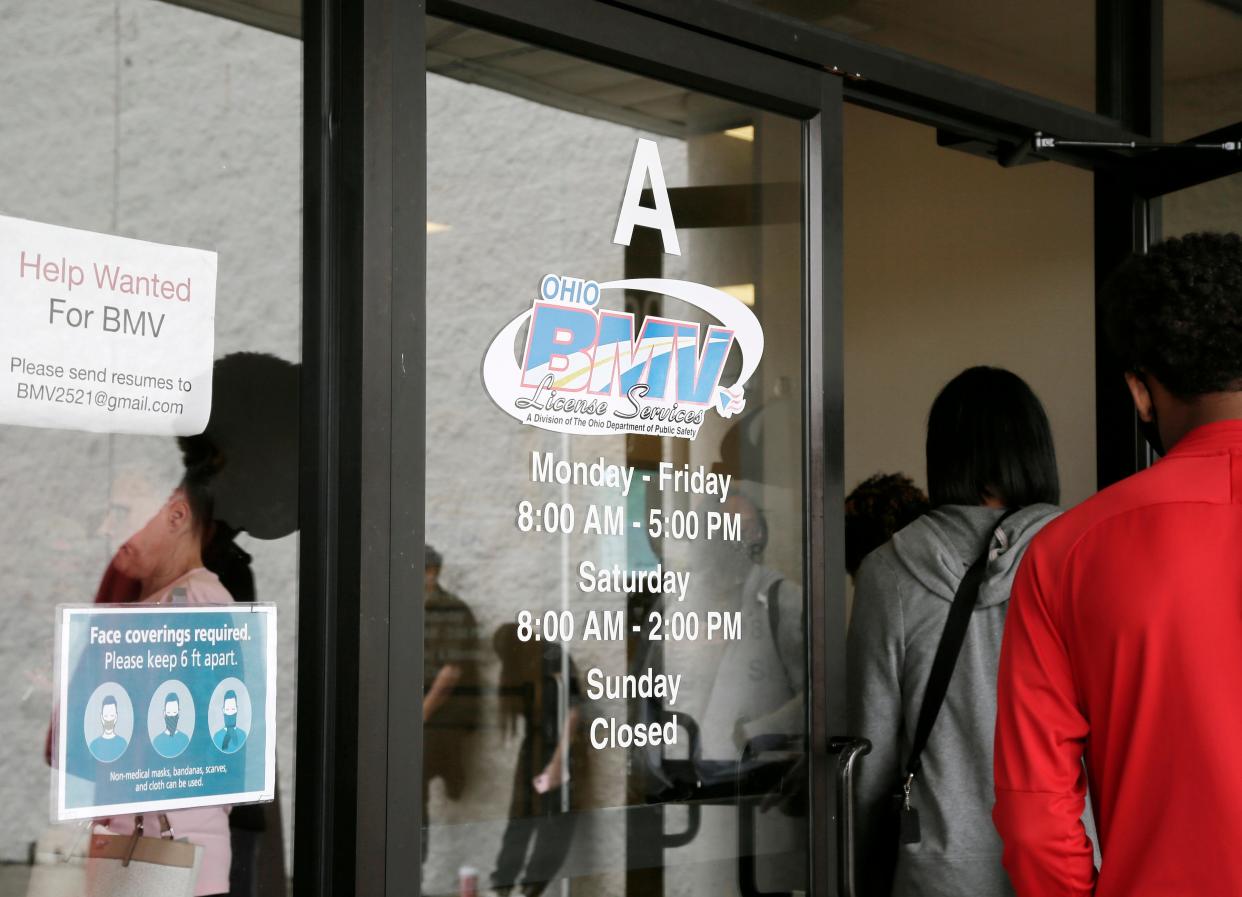Rejected vanity license plate request leads to lawsuit against Ohio BMV

The Ohio Bureau of Motor Vehicles, which approves or rejects vanity license plate messages, is facing a lawsuit from a man who wanted to put "F46 LGB" on his plate.
Jeffrey Wonser of Heath filed a federal lawsuit last week saying the plate censorship violates his First Amendment rights. The F46 in the number is an reference to President Joe Biden who is the 46th president. LGB stands for Let's Go Brandon, which has become a less obscene stand-in for insulting the president.
The Ohio BMV prohibits word and letter combinations that are profane, sexually explicit, advocate lawlessness or could provoke a violent response. The agency rejects about 750 to 850 requests each year.
The criteria stemmed from a 2003 settlement with Anthony Zucco, who sued the state after his application for RDRAGE was rejected.
Wonser maintains that the BMV hasn't been adhering to the Zucco settlement and has expanded its criteria for rejections. Wonser's lawsuit paints the rejections as "a largely arbitrary censorship regime" where bureaucrats are subjectively enforcing the guidelines.
"TIGSUX" wasn't allowed because the BMV team thought it could be interpreted as Tigers Suck, which could provoke violence from the Massillon High School football team, the lawsuit said. BMV rejected LMAO GAS and LMAO EPA but approved LMAOFF.
At first, Ohio BMV denied Wonser's request for F46 LGB due to the "potential perception of inappropriateness" and then later justified the rejection because it could be "interpreted as obscene, sexually explicit or scatological."
Wonser maintains that his plate wouldn't have violated those rules. He took it up with the Special Plate Committee, which also rejected it. BMV also turned down Wonser's request to make his case directly to BMV Registrar.
He tried to apply for a plate again with the forbidden message but the BMV had programmed its computers to automatically reject it, the lawsuit said.
Wonser is asking the federal court to declare the special plate guidelines as unconstitutionally vague and overbroad and block the BMV from enforcing them. He is seeking damages and attorney fees.
And he wants his F46 LGB plate approved.
Laura Bischoff is a reporter for the USA TODAY Network Ohio Bureau, which serves the Columbus Dispatch, Cincinnati Enquirer, Akron Beacon Journal and 18 other affiliated news organizations across Ohio.
This article originally appeared on The Columbus Dispatch: Ohio BMV faces lawsuit over vanity plate message rejection
